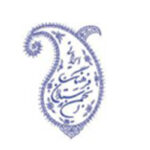Association for Bahá’í Studies conference experiments with new features
The 38th annual Association for Bahá’í Studies-North America conference (ABS) – entitled “Scholarship and the Life of Society” and held from 7 to 10 August – included new experimental features as part of an effort to reimagine the conference in line with guidance from the Universal House of Justice last year.
Lisa Dufraimont, Conference Program Co-Chair, shared during the first evening of the conference that the ABS seeks to stimulate scholarship and that the ultimate purpose of scholarship is to develop knowledge conducive to the development of the life society.
The approximately 1,200 conference participants came from a variety of places, backgrounds and academic disciplines and had various reasons for attending. One participant noted that he came to the conference every year because he was taught as a child to always seek knowledge, an attitude which he felt was encapsulated in this proverb: “From cradle to grave, search for knowledge.” One aspect of the mandate of the Association for Bahá’í Studies is to “stimulate an appetite for learning.”
One participant commented that the tone of the presenters was humble and exploratory, and that there was an increased focus on ways of working with like-minded individuals and organizations to generate knowledge that would be helpful for social progress. Other participants noted that they enjoyed having a space where they could connect with and learn from people from a variety of disciplines.
An increase in the number of plenary panels allowed a number of those in several academic fields to share their assessment of the strengths, weaknesses, methods and the reliability of the methods of three broad areas of human learning in light of the Bahá’í teachings: the social sciences, the natural and life sciences and the humanities. One presenter in the social sciences panel noted that while many thinkers in the field of political science tend to look at human activity through the lens of conflict, there are also a number of political scientists who are studying when, why and how people cooperate even when they do not have to in order to survive, and how people put aside selfish interest to participate in a group.
Another element of the conference was breakout sessions where groups shared reflections on their experience in participating in discourses in fields such as education, economics, the role of religion in society, and primary health care. A participant in the field of education noted that educators often know how to work with individuals but do not have a great deal of knowledge of how to help a group learn. She noted that the recent series of youth conferences called by the Bahá’í community provided insights into how groups come together and organize. One participant who studies religion noted that rather than viewing it as a collection of static beliefs and practices, he found it helpful to examine the history of religious processes. Another noted that he was currently exploring this question: How does religion contribute to healing divisions in Canadian society?

Mr. Paul Lample, member of the Universal House of Justice, gave a talk entitled “Toward a Framework for Action.”
Participants also benefited from subject area consultations in which individuals from a variety of fields came together to look at recent guidance from the Universal House of Justice on the intellectual life of the Bahá’í community and its greater involvement in the life of society, consult about their disciplines, share challenges and identify possible discourses, social spaces, and areas where there was potential for collaboration with like-minded individuals and groups. Some examples of subject areas included media and communications, social sciences, and the applied sciences.
As in previous years, distinguished Bahá’ís gave talks to edify and contribute to the thinking of participants. Mr. Paul Lample, member of the Universal House of Justice, gave a talk entitled “Toward a Framework for Action,” Dr. Haleh Arbab, Research Director of the Institute for Studies in Global Prosperity, presented on “Learning to Read Social Reality in Light of the Revelation,” and Dr. Vahid Rafati, who serves in the Research Department of the Bahá’í World Centre, gave the 32nd Hasan M. Balyuzi Memorial Lecture on “The Evolving Role of Bahá’í Scholarship.” The conference continued to include workshops on a wide variety of themes and an arts evening featuring both music and story-telling.
The new features of the conference came about after the ABS and its collaborators consulted extensively on guidance from the Universal House of Justice. The letter noted that the Universal House of Justice had recently completed a series of consultations on the intellectual life of the Bahá’í community and its greater involvement in the life of society, discussed some of the past achievements of the ABS as well as possibilities for the future direction of the Association and how it could further benefit from and contribute to the culture of learning the Bahá’í community is striving to foster.
Another topic covered in the guidance, which was the subject of discussion throughout the conference, was the notion of an evolving conceptual framework, “a matrix that organizes thought and gives shape to activities and which becomes more elaborate as experience accumulates.” [1] According to the letter, this notion of a framework was central to advancing the work of the Bahá’í Community in the fields of expansion and consolidation, social action, and involvement in the discourses of society. It also included a suggestion that “it would be fruitful if the elements of the framework most relevant to the work of the Associations for Bahá’í Studies can be consciously and progressively clarified.”
In a talk that drew extensively from both the Bahá’í writings and prominent thinkers in a variety of disciplines, Mr. Lample compared a framework to the boundaries of a soccer field which does not restrict the players, but rather allows them to play. Mr. Lample noted that there is a tendency to go to the extremes of either applying a framework rigidly or ignoring it completely. He referenced a quote of Shoghi Effendi where he wrote that one of the reasons that the Faith “does not advance more rapidly is because the friends have not learned to live with, and work within the framework of the Administrative Order.” The Guardian wrote that the friends tended to “crystallize it into too set a form, or they rebel against what they feel to be a System, and do not give it sufficient support.” [2]

Dr. June Manning Thomas (at podium), Dr. Ann Pearson (seated, left), Geoffrey Cameron, and Dr. Deborah Van Den Hoonaard participate in a panel discussion on the social sciences.
Mr. Lample shared that in the absence of a framework for growth in the past, Bahá’í communities tended to go in two different directions – teaching, but no consolidation, or small, well-administered, but inward-looking communities. He noted that there are 200 clusters in the world where 100 or more individuals are supporting the participation of 1000 or more individuals, and in the most advanced clusters, there are 500 people supporting the participation of more than 10,000 people. He related these developments to the fact that communities have learned to work within a common framework.
Mr. Lample also noted that one of the challenges of public discourse in the West is that each person is convinced that he or she is right, they know what they know and refuse to change their thinking. He also noted that a view can be wrong, even mostly wrong, without being altogether wrong, and that ideas are often abandoned altogether instead of being sifted through carefully.
A number of people also participated in a lively consultation on the vision and activities of the Association for Bahá’í Studies in North America. Near the end of the consultation the friends tried to understand how the elements of the framework most relevant to the work of the Associations for Bahá’í Studies could be consciously and progressively clarified. In this connection, one of the participants posed this question: “How do we get to the point where everyone is taking disciplined initiative within a common framework?”
[1] From the Department of the Secretariat of the Universal House of Justice to the National Spiritual Assembly of the Bahá’ís of Canada, 24 July 2013
[2] Light of Divine Guidance, p. 182
Category: Highlights, Public discourse









